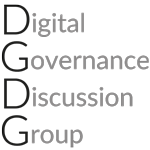By Pari Esfandiari.
The recent Global Digital Compact (GDC) discussions held in September 2024 have reignited the call for a more integrated approach to digital governance, highlighting the urgent need to merge the World Summit on the Information Society (WSIS) Action Lines with the Sustainable Development Goals (SDGs). As we look ahead to the WSIS+20 in 2025, the time is ripe to address this separation and work towards a unified framework that streamlines efforts, maximizes resources, and accelerates progress toward sustainable digital development.
Since their inception, WSIS Action Lines and SDGs have operated in parallel, often duplicating efforts despite their common goal of leveraging digital technologies to advance sustainable development. The two frameworks, though aligned in purpose, remain largely disconnected, resulting in missed opportunities for synergy and coordinated action.
Continue reading “Digital Synergy: The Urgent Case for WSIS-SDG Alignment”